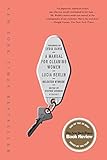If you have ever been in a writing workshop, especially of the MFA variety—and good for you if you haven’t—you are likely familiar with the most dreaded response a piece of writing can get. It can be phrased in a variety of ways, sometimes hedged and mealymouthed and sometimes forthrightly insulting, but it is essentially this: Why is this story is being told? It’s a curious criticism, one that invites responses that are escalatory and often epistemological in nature, for example: “Why should I care about your opinion?” or “Why is any story told?” or “Why do we bother doing anything?” This line of criticism, especially when it is directed at you and something you wrote, is maddening, both in its dismissiveness and in its unanswerability.
And yet it captures something about a lot of writing, even writing that is good, or “good”—well-considered, well-phrased, and well-paced. Lots of good writing has this inert, pointless quality, and sometimes otherwise amateurish, inept writing has a curious vibrancy. Whatever the case, the first test that any piece of writing must pass is answering, in some way, why it exists.
To put it another and possibly less clear way, all fiction has to do battle with its own fictional nature. There’s a minor absurdity inherent in the act of entering a world invented by another person, even if we ardently wish to enter such a world. As readers, we sense it in the beginning of any new book—the dipping of toes into the water, the wading in. It isn’t so much realism or factuality that pulls us beneath the fictional surface, but a kind of mysterious weight, the gravity of a story that, for whatever reason, needs to be told. Narrative lacking this quality cannot convince us to read past the bare fact of its arbitrariness, its status as something created. It sits there, only making us aware of the infinitude of stories that can be told, when a good story does the opposite, narrowing the universe to its singular vision and significance.
One of the atomic elements of this weight—the felt necessity of a piece of writing—is a text’s narrative perspective, its particular deployment of POV and tense. And one of the most potently self-justifying combinations of narrative voice and time is first-person retrospective. Done well, it possesses implied narrative motivation as part of its DNA. Here’s the beginning of Stephanie Vaughn’s classic story “Dog Heaven”:
Every so often, that dead dog dreams me up again.
It’s twenty-five years later. I’m walking along Forty-second Street in Manhattan, the sounds of the city crashing beside me—horns and gearshifts, insults—somebody’s chewing gum holding my foot to the pavement, when that dog wakes from his long sleep and imagines me.
I’m sweet again. I’m sweet-breathed and flat-limbed. Our family is stationed at Fort Niagara, and the dog swims his red heavy fur into the black Niagara River…
This is a story about childhood. The narrator, Gemma, recalls a year of her childhood as a transient army brat and, in particular, her friendship with a boy named Sparky who drowns in the Niagara. It also details her family life, the triumphant return of the titular dog after running away, her pacifist teacher’s moral lecture on nuclear war, and several other memories of that vivid year on the Canadian border.
Notably, it never returns to her actual narrative position, 25 years later in New York. This is an unusual choice for a frame narrative—as readers, we expect what occurs inside a frame narrative to inform our understanding of the frame itself. Frame narratives offer a kind of significance IOU: however long it’s withheld, the story being told will eventually telescope out to the teller, thereby creating a diegetic justification for the telling, which, in turn, helps create a reader’s sense of the telling’s necessity.
But the frame itself implies a justification for the story’s telling, and what’s interesting about Vaughn’s story (and others in this collection) is that it turns out you don’t really need to know how the story has affected Gemma. That she is telling it at all—that apparently, this era of her childhood comes back to her at random moments during her adult life two decades later—is enough: it must be important. This implied motivation suffuses the whole story and informs our reading experience. What might otherwise read as a nice piece of nostalgia, a bit sentimental, perhaps, with its runaway dog and dead childhood friend, reads as something more serious and complex, something with the weight of subsequent lived experience behind it even if we don’t know what that experience is.
 Jesus’ Son, by Denis Johnson, employs this dynamic throughout the entire book. For large swaths, sometimes entire stories, we are allowed to forget that this is something that happened, not something that’s happening. But then, every so often, the present-moment narrator slides in and reminds us. “Emergency,” probably the most famous story in the collection, begins in this way:
Jesus’ Son, by Denis Johnson, employs this dynamic throughout the entire book. For large swaths, sometimes entire stories, we are allowed to forget that this is something that happened, not something that’s happening. But then, every so often, the present-moment narrator slides in and reminds us. “Emergency,” probably the most famous story in the collection, begins in this way:
I’d been working in the emergency room for about three weeks, I guess. This was in 1973, before the summer ended. With nothing to do on the overnight shift but batch the insurance reports from the daytime shifts, I just started wandering around, over to the coronary-care unit, down to the cafeteria, et cetera, looking for Georgie, the orderly, a pretty good friend of mine. He often stole pills from the cabinets.
With this, we are off with Fuckhead (the narrator) and Georgie as they take drugs and hallucinate and endanger patients, and kill rabbits, and rescue a draft dodger. No more mention that this is in the past, but the fact hangs over the story like one of the Midwestern snowstorms always threatening to blow into Iowa City. Johnson never elucidates exactly how long has elapsed between the story and the storytelling, but it feels like a long time—decades, maybe—and this communicated distance is vital to, as in the case of Stephanie Vaughn’s stories, providing depth and significance to what might otherwise feel like mere druggy randomness. This holds true over the course of the book and lends it a coherent shape—in vulgar terms, the shape of a recovery narrative. The narrator’s present-day existence, though faint as a ghost, suggests not only the significance of the stories he’s telling, but the simple fact that he’s around to tell them. Despite the Quaaludes and heroin being taken, the drunk driving, the almost slapstick violence, and the random appearance of handguns, we understand that our storyteller will walk right through, like Jesus on water. The novel’s stakes are thereby transformed from pure survival to the meaning and value of survival, to what survival might later entail.
Not knowing the exact terms of how this story has affected the narrator is advantageous. It creates a pocket of ambiguity the reader can fill with whatever they want in terms of significance and according to the reader’s own experience and aesthetics. To me, Jesus’ Son, despite all of the drugs and death and foolish misery, ultimately reads as a triumph. But a different reader might fill those years between telling and told with a sense of loss and regret.
 In a story from her wonderful collection A Manual for Cleaning Women, entitled “Point of View,” Lucia Berlin makes the case for the (what I’m calling in this essay) implied narrative motivation—the weight—of third person, arguing that it possesses an authority that first person lacks. Introducing her character, she says:
In a story from her wonderful collection A Manual for Cleaning Women, entitled “Point of View,” Lucia Berlin makes the case for the (what I’m calling in this essay) implied narrative motivation—the weight—of third person, arguing that it possesses an authority that first person lacks. Introducing her character, she says:
I mean if I just presented to you this woman I’m writing about now…
“I’m a single woman in her late fifties. I work in a doctor’s office. I ride home on the bus…” You’d say, Give me a break.
But my story opens with “Every Saturday, after the laundromat and grocery store, she bought the Sunday Chronicle.” You’ll listen to all the compulsive, obsessive boring little details of this woman’s, Henrietta’s, life only because it is written in the third person. You’ll feel, hell if the narrator thinks there is something in this dreary creature worth writing about, there must be.
This suggests a productive approach to looking at the effect of various ways of telling a story. As stylized as the written word has become over the centuries, at its heart, narrative is based on oral storytelling. We still, on some level, encounter fiction transmitted via the intermediary of a book in the same way we encounter fiction as told to us by someone. It can be useful to imagine the author as a stranger who sits down beside us at a crowded bar. Berlin’s account seems intuitively true in this respect: if this stranger begins telling us about another stranger, it is simultaneously less engaging and more motivated—that is to say, we would infer that they have a good reason to be unloading this on us, even if in doing so they have to convince us to care about this other, described, person.
If, on the other hand, they simply begin talking about themselves and the kind of day they’ve had, the story they tell hinges purely on how interesting and arresting it is, and until they command our full attention with their raconteurial power, we may wonder why we’re supposed to care. We may assume, as is often the case, that this person just likes to hear themselves talk.
Finally, to return to the case of retrospective narratives, if a stranger begins their story with, “Let me tell you about something that happened to me ten years ago,”—as both Vaughn and Johnson do—they probably have our attention. The duration of elapsed time is suggestive: of potential loss and lessons learned, of all the many reasons they not only remember the story but still feel compelled to tell it all these years later. We may leave the bar thinking not only about their story, but about them, inferring things, writing our own version.
Image: Flickr/Harsha K R









